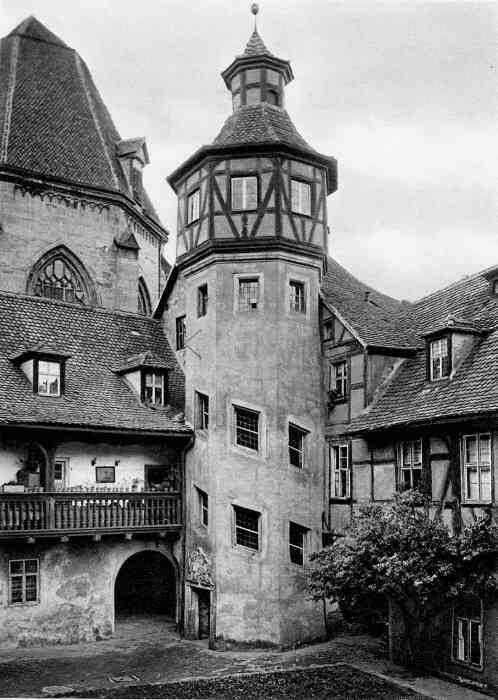




Embracing Tradition
The camera pans over a long list of names on a wall plaque showing the individual promise of a lifetime of great achievement by the best, brightest and most endowed that a society could generate to take their individual places at the bar, as physicians, as City financiers, politicians, and others. A generation that would create a mountain of wealth, apply its brain power to solve monumental global problems and move society forward into a great new frontier, completely decimated to where what is left is a barren dirt meadow with a thin scattering of grass blades attempting to survive in the hard scrabbed desert….
The 1981 Academy Award movie for Best Picture, Chariots of Fire, shows the leaders of Cambridge impressing upon its first year class in 1919 their promise, and responsibility to embrace the future and carry on where their previous years’ classmates and countless other men in that generation would not be able to, due to having been killed on the battlefield during World War I.
The United Kingdom had a population of 45.4 million at the beginning of World War I. Its total deaths from that war equaled 995,939 or 2.19 percent of its population, while its injured totaled 1,633,435 or 3.6 percent of its population. I could not find exact population breakdowns, but let’s assume that of the 45.4 million British citizens alive at the onset of World War I, that 22.7 million or 50 percent were male. That meant that 4.38 percent of British males died in that conflict, and that 7.2 percent of British males were wounded. Unfortunately, time does not permit me unfortunately to track down exact percentages of young men ages 18-30 who perished during that war, but one can safely assume that the great majority of war deaths and injuries were from that age group. Cambridge itself was financially and collegially devastated from that war from the numerous students and faculty who were killed in battle. My wife shares about how as a little girl in England, she remembered seeing many old ladies, who were single who had never married due to the severe shortage of eligible males after World War I.
In so many ways, the oldest tradition on the planet is the tradition of carrying on. Ones who say, “I’m not traditional”, or “I don’t follow tradition”, sadly miss that fact. They follow tradition each and every day that they choose to get out of bed, eat breakfast, and embrace the day, for better or for worse. One generation passes, another takes its place.
Tradition is a word that has fallen out of favor in the past twenty years as thought leaders across a host of institutions are encouraging people to always be about wanting and pursuing change. That pursuit can bring opportunities for new inventions and ideas, and also consequently, for new wealth. Dynamism lifts a lot of boats, increasing the collective society’s wealth.
What makes devotion to tradition a good and healthy thing? Is the tradition that you are devoted to truth, or a close variant of it? Is the tradition you are devoted to a method of disseminating an idea? There are some ideas that are worth falling on the sword for because to forsake them is to forsake the very essence of who you are and what you are professing to believe. There are other traditions that are simply roadways one travels to arrive at a destination. The roadway you are on may be the one on which you are most comfortable, and the frame of reference you are operating in suits your understanding. That path however, may not be the one that your neighbor understands or appreciates. He may be aiming to arrive at the same destination as you, but he may do it on a road that speaks to his life. As long as both roads are morally positive in their flow to get you where you want to be, both essentially have value and have
validity.
Some societal outcomes can be viewed as acceptable, for instance, a prosperous community, but the road one is using to get there can be morally flawed. Take for example, the British slave trade. Slavery in England served the needs of the land owner and trading classes. However it was morally wrong as it treated another human being as less valuable, simply due to his or her skin color. The continuation of that practice for the purpose of the continued profit and wealth of the traders and owners would have led to more serious social problems in England. It did lead to serious problems and eventually, to a civil war in the United States. It took William Wilberforce the better part of two decades to get that practice ceased in England.
According to dictionary.com, the word tradition, itself, means the handing down of statements, beliefs, legends, customs, information, etc., from generation to generation, especially by word of mouth or by practice. A long-established or inherited way of thinking or acting; a continuing pattern of culture beliefs or practices; a customary or characteristic method or manner: for example, ‘The winner took a victory lap in the usual track tradition.’
In religious terms, tradition among Jews consisted of a body of laws and doctrines, or any one of them, held to have been received from Moses, and originally handed down orally from generation to generation. Among Christians, it is held to be a body of teachings, or any one of them, held to have been delivered by Christ and His apostles but not originally committed to writing.
Looking at tradition in legal terms such as Roman law or Scots law, it deals with the act of formally transferring ownership of movable property; delivery.
What are some values of tradition?
It allows for an orderly society – it helps when individuals know what the rules of society are so that they can follow them.
It enables one to make connections with the past – the old saying ‘you won’t know how to arrive at your future if you don’t know your past.” holds true. There is a logical plane that one’s path follows from what occurred in the past to what it will be in the future.
It allows for one being most successful in the future – if one knows that following certain rules will enable one to achieve certain outcomes in the future, one is wise to follow those rules so that one can be successful.
Value of change:
Is the tradition rooted in truth or in preference? – there are many times where something has been done over and over and people really can’t provide a good reason for why that has occurred. It is just, “That’s the way we have always done it”. This can be as simple as cooking a special roast recipe on a particular pan. You have always done it that way because your mother did it that way. What you don’t know is that your mother learned that method from watching your grandmother who it just so happened used that particular pan because she didn’t have a smaller one in the house. Cooking the roast on the smaller pan may actually be a better way to prepare it, but can you break your learned habits?
Is the tradition inhibiting a higher good? – Some things are done over and over every year and people are comfortable with the status quo. However, they are not really advancing or achieving anything, or another group of people is being excluded from the benefits of the situation.
Does the tradition make sense for today? – one conflict that has been a thorn in numerous churches in the United States the past twenty years is the argument of some people that certain aspects of church life are not relevant for today’s culture. It may be small things or it may be on the level of re-writing certain verses in the Bible to make them more palatable for a 21st century audience. One can make a reasoned and logical argument that church does not necessarily have to be held at 11:00 am on a Sunday morning to be a legitimate service and one that honors God. Saturday night is fine, as is some other time during the week. Re-writing Biblical text however can be a lot more dicey, as unless you are really expounding upon original text you might be diluting or fundamentally changing the original meaning that is there. Truth is immovable and lasting, whereas how one studies aspects of it should be able to be flexible in order to suit individual needs.
Let us now examine a tradition that spanned many centuries, and in its coherence, enabled a people to really prosper. This is the tradition of the English Gentleman. I read a very good article highlighting some of the aspects of what made an English Gentleman, and how that was a force for good in English society from the time of Chaucer up until World War II.
Some of the characteristics include:
- One who upheld religious principles
- One who upheld moral principles
- One who maintained gentlemanly conduct
- One who pursued intellectual ability
- One who did things because he knew that they were the right thing to do, not because they would bring him personal advantage
According to The English Gentlemen, written by Philip Mason in 1982, the desire to be a gentlemen in English society ran from the time of Chaucer up until World War II. In some ways, it was a second religion to the English, one that was less demanding to them than Christianity. The idea of gentlemen influenced their politics and system of education. They were led to endow new public schools, and raise the status of old grammar schools. It inspired the professional and middle classes to provide an upbringing for their children of which the object was to make them ladies and gentlemen even if only a few of them managed to attain high scholastic status..
Cardinal Newman, from The Idea of a University, stated it this way: “A liberal education makes not the Christian, not the Catholic, but the gentleman. It is well to be a gentleman, it is well to have a cultivated intellect, a delicate taste, a candid, equitable, dispassionate mind, a noble and courteous bearing in the conduct of life; these are the connatural qualities of a large knowledge; they are the objects of a University…but they are no guarantees for sanctity or even for conscientiousness; they may attach to the man of the world, the profligate, the heartless.”
The tradition of gentlemen was placed in verse by none other than Matthew Arnold who penned Rugby Chapel:
Not like the men of the crowd
Who all around me to-day
Bluster or cringe, and make life
Hideous, and arid, and vile
But souls tempered with fire
Fervent, heroic, and good
Helpers and friends of mankind
In The Gentleman in Trollope, Shirley Letwin states, “There is an unselfconsciousness about a gentleman’s morality.”
Having an elevated standard of conduct increases both the chances that some people will live up to it, and the dangers of failure and hypocrisy
We still need an ideal of good conduct […] which helps to raise us above boorish self-seeking, an idea which includes modesty, magnanimity and the willingness to sacrifice oneself for the sake of others, especially those who are weaker – (Strange Death of the English Gentleman, Andrew Gimson, September 2012, Standpoint)
From readers of the article
- “One aspect of being a gentlemen is chivalry which requires physical toughness and fighting skills in order to protect a lady’s honour. Historically gentlemen were taught boxing and fencing. The problem is now that many men lack the physical toughness and fighting skills to defend a lady’s honour. The old saying “I don’t want to fight but I will (if) I have to” which was based on ability to fight but a preference to settle disputes peacefully is very rare nowadays.” – Mike
- "A gentleman or gentlewoman is a person who always strives to do the right thing even if it doesn’t serve their own direct interest. Polite, considerate, not unkind…No real gent could ever claim to be one, the accolade is given by others”. – Carl
- "The Gentleman is the sole flame of the world. He burns himself up to give light to the world. But please notice he burns. A Gentleman is not supposed to let his mind sway towards his emotions. He is supposed to always set an example of unbiasedness through his own sufferings and sacrifices. A Gentleman though lives for only one thing and that is, to be known as The Gentleman” – N.D.
A number of years ago I looked at an article on-line ranking the greatest cultures in world history. The British Empire was ranked second behind the Roman Empire as it related to its influence upon the world. That type of influence upon the world stage requires a strong sustained commitment to an ideal that is passed down from generation to generation in order to project itself. The culture of Great Britain was enabled for many centuries by at least the lip service that people gave to the idea of God and His authority over their lives. Some were more fervent than others and different eras had an ebb and flow in the continuum of this. There were a number of fundamental truths though about how one should live, that permeated the lifestyle of a British male if he wanted to achieve gentlemanly status. Corporately, the application of this idea enabled Britain to become a great colonial power, be the first to undertake the industrial revolution, and to rule the seven seas.
Yet at the same time, not all of the aspects of what comprised an English gentleman were necessarily founded in universal or biblical truths. One could make an argument that there were likely elements of pride that entered into the picture that contributed to a certain subtle superiority of the British way vis a vis the rest of the planet.
Nevertheless, the love of Crown and personal reputation, combined with a commitment to religious principles kept the upper class and the aspiring professional and middle classes focused upon the task of making tomorrow better than today, and that pushed them forward from the days of the Magna Carta to Flanders Fields, with the remnant defending the coastland from the skies against Hitler’s Luftwaffe.
So one has to ask, if commitment to the traditions of an English Gentlemen contributed to the greatness of the British Empire, how does one take the principles that are rooted in truth and create a new idea that will carry our nations and our cities forward into a new era where construction, not destruction is the norm; where harmony and not dissonance reigns; where natural law has authority and not man’s individual whims?
1. Man must embrace the motto “We will either be challenged or we will be entertained – It is amazing what the advent of television and now all of the other video entertainment on the Internet has done to drive the world into more of a consumerist entertainment culture. Men and women need challenges today that they can rise to and embrace. Brother Andrew was a man who grew up in Holland and was a teenager in the Resistance during the Nazi occupation. Through a series of events and disappointments he entered his life’s work in the 1950’s and that was to take Bibles to people in countries that were oppressed. This work started in Eastern Europe and the Soviet Union and then spread to China, the Middle East and other areas. In his book, The Calling, he challenged people to have a purpose in life that they could be committed to and follow. The zest to accomplish something keeps the mind focused and off ourselves and our mundane pleasures. If we are not living our own challenges we are more apt to live vicariously today through the lives of others.
2. Man must ask who and what he worships – Who or what is the object of one’s worship? Is it having more money? Is it having a lot of friends, Is it having a good reputation? Is it being highly educated? Is it God? Who or what is it? What is going to capture his heart and mind and keep him slavishly focused for 17 hours each day? Does that thing, idea or person have lasting significance or value? Is it something that is weighty? Does it strengthen him, or encourage him for the future?
3. Man must assess who his role models are – Who are you following in life? Is it a sports figure, an entertainer, a politician? Is it a family member, teacher, community leader? Why do you follow them? What makes them worthy of an investment of your time? How solid is their life? How well constructed are their thought processes and ideas? How consistent have they been as people over a twenty year period? Do they transcend their period in time? I look at famous people today and think, “Who would I have at my fantasy dinner party?” Names such as Winston Churchill, Margaret Thatcher, Ronald Reagan, William Wilberforce, Jim Elliot, Hudson Taylor, Queen Elizabeth II, and Mary Lindel are just a few names that come to mind. They are people who knew who they were, who rose to the occasion to do the work that God had created them to do in whatever realm that was to be and they did it with excellence.
4. Man must recognize that he must live beyond himself – One phrase I heard from a group I was involved with at university which I have kept in my mind over the years is “eternal perspective”. Am I making investments of time, talents, and resources that are going to outlast me and make a mark for the eternal world? Whatever view one has of God or how involved one views Him as being in the daily affairs of man, one will live forever. For those who call themselves Christians, that eternity is of far more lasting value than the brief period of time they have on earth. That time on earth is simply their preparation time for eternity.
5. Man must endeavor to be a much better informed citizen – It is really quite criminal today how ill informed many citizens in the West are regarding politics, the economy, the freedoms in the Constitution, and simply daily life in general. However they know a lot of sports trivia, or have an addiction to various forms of entertainment. Quality citizens of influence know their history, and their daily affairs and consider how and what things may be like in the future. They know these things in such a way as to be able to speak with conviction and authority into other people’s lives
6. Man must eschew light commentary for serious understanding – We live more in a sound-bite world each day. Every institution is catering to this including the churches, the media, political figures themselves and others. With so many stimuli bombarding our brains it is quite difficult to really ponder any one idea or topic for any length of time. However, ponder it we must if we are going to become substantive about anything. If one’s philosophy of life is worth anything, it is worth serious pondering from every angle as it relates to how each facet of it intersects with the world and other people.
7. Man must walk forward into his destiny regardless of who is following behind – We must be brave and fearless with the ideas that we own for ourselves. We must so completely own them that even if no one follows behind, we are still walking forward because we have our eyes fixed upon the prize that is in front of us. We must ask ourselves if we really know the value that is inherent in our destination. The more we know that value and appreciate that it will be ours if we stay the course, the more we will be committed to what we are doing.
8. Man must recognize that there is a tomorrow – Our culture tells us to live for today. Eat, drink and be merry for tomorrow we die! However for most earthly mortals there will usually be a tomorrow up to a lifespan of 75, 80, 90 years or greater today if one is reasonable healthy. How strong is self-control in our lives? Can we postpone our pleasures until tomorrow, knowing that they may be that much sweeter? Can we focus on the weighty things today?
9. Man must rediscover the definition of truth – Our society today is like a wave of the sea blown and tossed by the wind due to the fact that we have pulled up all the anchors and are letting everything bounce around in a state of chaotic freedom. We don’t recognize however that the “freedom” is merely an illusion and that we are not as free as we would lead ourselves to believe. Truth instills order which serves to enable us to live in more freedom because we know the rules of the game that have been established through the upholding of truth.
10.Man must determine whether he desires freedom or security – Benjamin Franklin exhorted the new United States citizens in this, and that question is as salient today as it was then. A man who wants to accomplish something and has an independent mentality, will treasure his freedom because he sees the unlimited possibilities ahead. He recognizes that reward comes with risk.
Incorporating these points into one’s life will enable one to move forward with an authenticity that is more enduring than that of the gentleman or another societal invention. The age-old tradition of carrying on with the best one has to positively impact the future, is the only change that I can believe in as it is one that is rooted and grounded in fundamental truth. Citizens inhabiting the cities of our world can experience a new era in civilization and transform their institutions into factories for life.
Embracing Tradition
Posted: October 7, 2012 by Chuck DeShazo
Articles

1. Man must embrace the motto, "We will either be challenged or we will be entertained."
2. Man must ask who and what he worships.
3. Man must assess who his role models are.
4. Man must recognize that he must live beyond himself.
5. Man must endeavor to be a much better informed citizen.
6. Man must eschew light commentary for serious understanding.
7. Man must walk forward into his destiny regardless of who is following behind.
8. Man must recognize that there is a tomorrow.
9. Man must rediscover the definition of truth.
10. Man must determine whether he desires freedom or security.